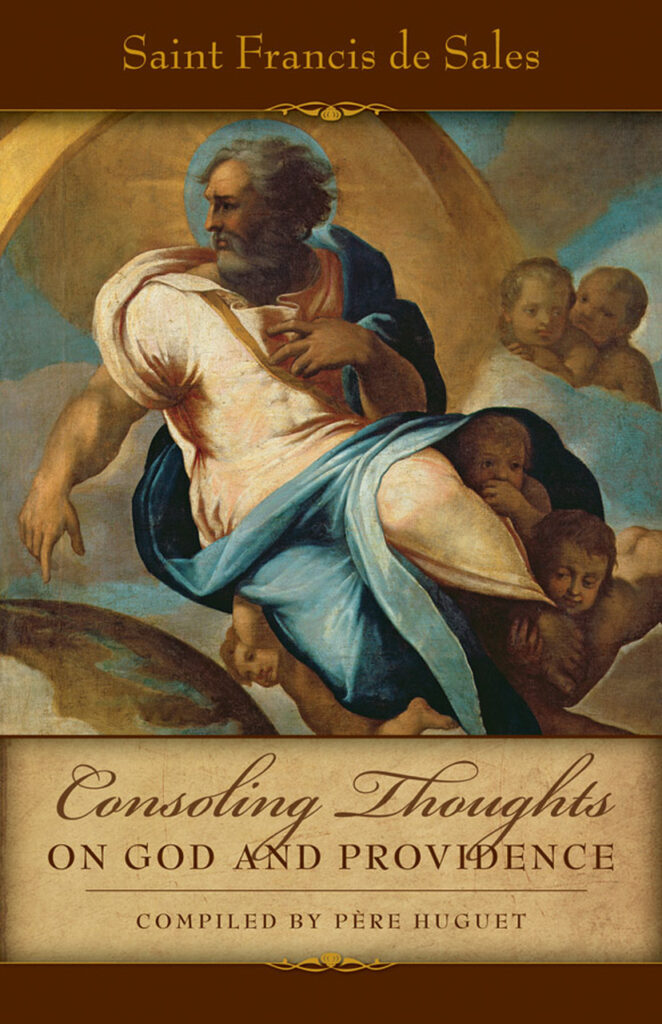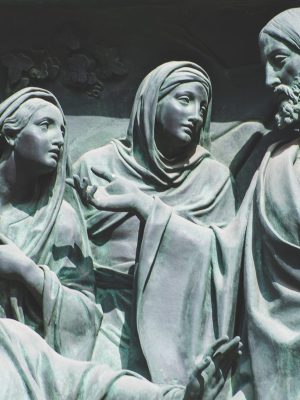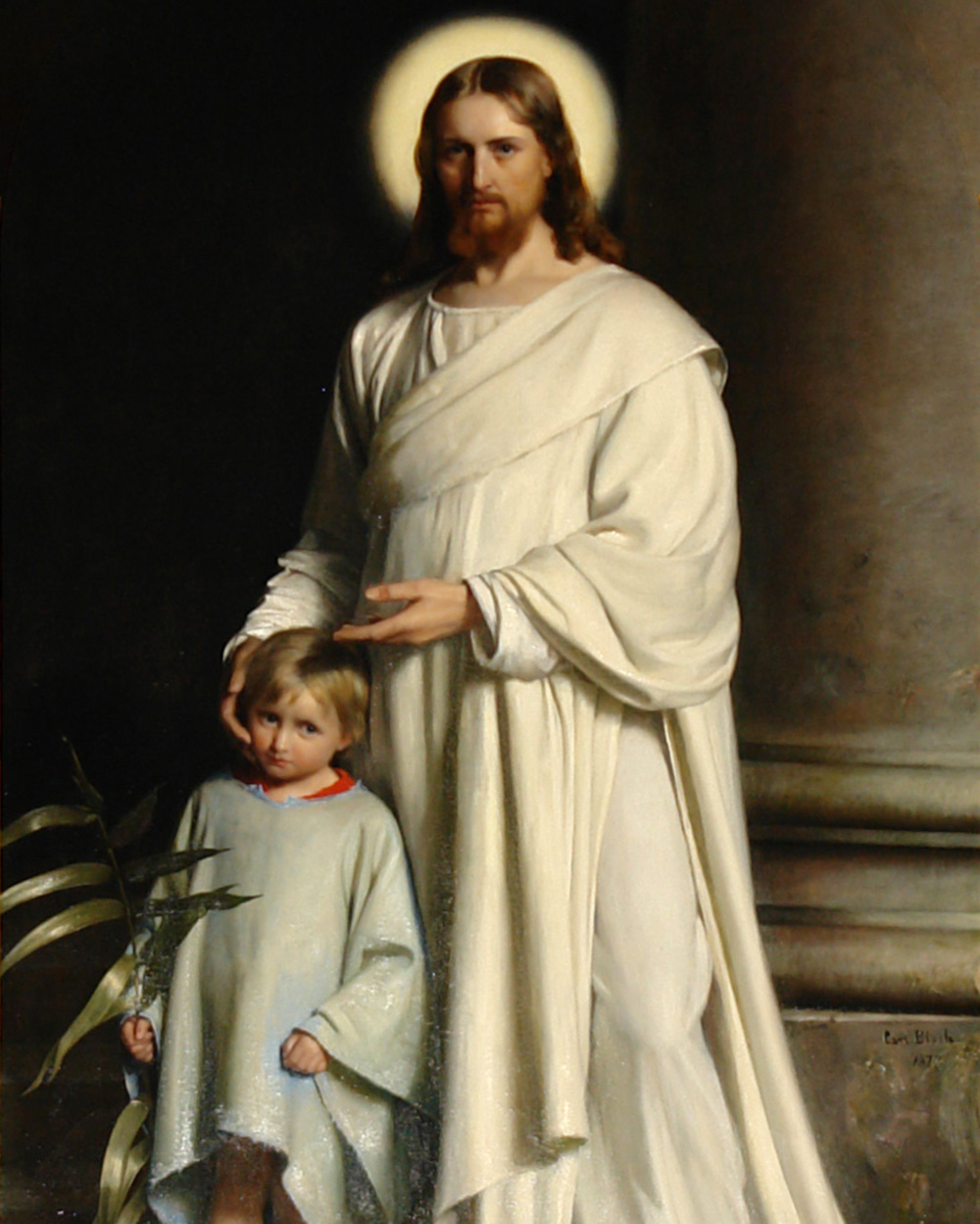Our Lord, the great and excellent physician of our infirmities, announced everywhere, before coming into this world, both His arrival and the maladies He would cure; sometimes by His prophets:
“I will bind up that which was broken and I will comfort that which was weak. The Spirit of the Lord is upon Me; to teach the poor He hath sent Me, to heal the contrite of heart. They will be cleansed from all their iniquities – and Thou shalt save the humble;” sometimes by His own mouth: “Come to Me, all ye that are weary;” but, above all, when He was called Jesus, for physicians do not always cure, and therefore it was not sufficient to call Him merely physician, but He should be called Savior, inasmuch as His remedies are infallible.
What wonder then if in the Gospel we find Him surrounded by the sick, by sinners, and by publicans! O vain and foolish murmuring of the Hebrews, when they said: “This man receiveth sinners.” Whom would you wish Him to receive? Is it not the honor of a physician to be sought for by the sick, and so much the more as their maladies are considered incurable? Our Lord, not so much to condemn the temerity of these Pharisees as to give us courage to approach Him, banished far from Him, by fitting similitudes, their ungrounded supposition. Let us conclude then with reason from His discourse, that it is His pleasure to lead back sinners to mercy.
The soul departs from God, flying away from His graces and the means which He proposes for our salvation, as we say that a man flies from physicians: not that he hates the person so much as the prescription of the physician.
By how far sinners are from God, by so far are they from His mercies. What a pity! What regrets! For that which the great St. Augustine says is most true: “Lord, Thou has made us for Thyself, and our heart cannot rest, but in Thee.” Oh! What disorder in man with regard to his God and with regard to himself! But there is one consolation in the midst of so great a desolation, that, though the sinner is far from God, he may return and will be well received. “Let the impious forsake his way, and the wicked man his thoughts, and let him return to the Lord, and He will have pity on him; for He is bounteous in His mercy to forgive.”
Thus, how were the poor Prodigal and the unfortunate Absalom received by their fathers? And, otherwise, what would become of us, for all have sinned? Every man is a liar, that is to say, a sinner. If we say that we are without sin, we deceived ourselves. Return to the Lord, and forsake your injustice; for His mercy is great towards those who are converted to Him. Why is He called Savior, unless in order to save? Sinners and publicans drew nigh to hear His word.
In the twenty-second chapter of the First Book of Kings, it is related of David, that being in the cave of Odollam, needy and afflicted men gathered to him, and he became their king; this was to prefigure the second and true David, who should allow the poor and needy, the afflicted and the miserable, those groaning under the heavy burden of corporal infirmities, and much more those sinking under the insupportable burden of sin, to approach to Him.
The Pharisees murmur because He receives sinners; but let us observe for a little how He receives them, and we shall behold great wonders. That the sinner can depart from God, and from himself, is certain. The Spirit goeth and returneth not. “Thy destruction is thine own, O Israel; thy help is only in Me.” And St. Paul: “We are not capable of ourselves to have any good thought, but our sufficiency is from God.” We can run away quickly enough, but cannot make one step back again. Our Lord prevents the sinner and goes to seek him, calls him and invites him to return; otherwise, the sinner would never think of it. I acknowledge that my strength comes from Thee, my God, because Thou art my support.
The mercy of my God will prevent me. It is God who produces good wishes and desires within us, and it is He who perfects them, and conducts them to execution. Draw me after thee, and we shall run. He who voyages with the wind, returns with a contrary wind. Never would Absalom have returned to his father, if the Thecuan woman had not obtained his forgiveness; never would the sinner return, if mercy did not prevent him. O infinite goodness! Our Lord goes in search of the lost sheep; otherwise, it would never return. Ah! Though some murmur at mercy, let us at least praise it, for it receives sinners, and seeks them. Jesus being in the temple on the day of the great solemnity, cries out, saying: “If anyone thirst, let him come to Me and drink; come to Me all you, etc. The Son of Man is come to seek and save that which was lost. How many times would I have gathered them together as the hen gathereth her chickens!”
But, oh, miserable that we are! We are often called, and we only turn a deaf ear. “I have called, and you have not heard,” says God. We are drawn, and we obstinately resist Him. He complains, saying: “All the day long have I stretched out My hands to this incredulous and rebellious people.”
O holy, fortunate and happy crowd of sinners and publicans, who approach to Our Lord! They are not like those invited to the great feast, who excused themselves: they come, and are welcome. O my Savior, how have these sinners drawn nigh to Thee, since Thou art just? For David says absolutely of the just man that evil must not approach to him: “Depart from Me, ye wicked.” “No one can come to Me, unless My Father draw him; and him who cometh to Me I will not cast forth.” Since it is thus, O Savior, O Redeemer, O good God, and you will be enlightened, and your faces will not be confounded; for He receives sinners.”
But behold the manner of approaching to Him: we must retire from sin. “Retire from evil. Go out from Babylon, flee the Chaldees; peace is not with the wicked,” says the Lord. You have sinned by thought, word, and deed; you must have recourse to contrary things, contrition, confession, and satisfaction.
Our Lord is like the sun which shines everywhere. “His course is from the summit of Heaven.” He sheds his rays on the just and the unjust, and from the muddiest pools extracts vapors, which, arrived at a certain elevation, are converted into a gentle rain, which, falling in its turn, gives life and fruitfulness to plants. From the greatest sinners, God brings forth holy exhalations, which are considerations on their faults, up to a certain height of fear and apprehension, as to a middle region of the air; considering that they are between Heaven and Hell, between salvation and damnation. “His spirit breathes, and the waters flow.”
These are the waters of contrition, which make the earth germinate and produce the fruits of salvation. But we must allow ourselves to be drawn, we must acknowledge our miserable condition. Let us then depart, let us depart from Egypt, let us approach Our Lord, let us make provision of good works; let the feet of our affections be bare, let us clothe ourselves with innocence, let us not be satisfied with crying for mercy, let us go forth from Egypt, let us delay no longer. The hour is come to arise from sleep, since we know that He receives sinners; the angels await our repentance, the saints pray for it.
This article is taken from a chapter in Consoling Thoughts on God and Providence by St. Francis de Sales which is available from TAN Books.







